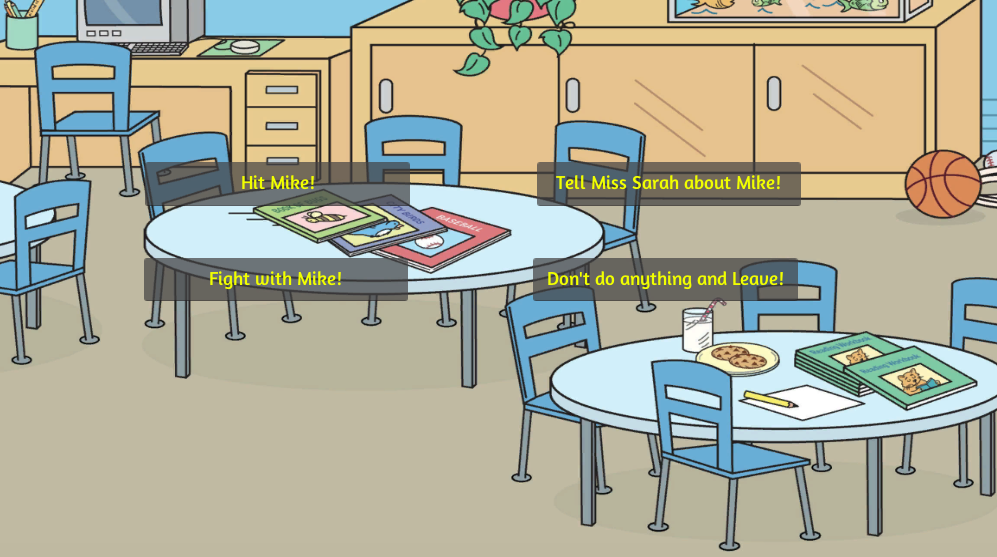Day with Chip
Interactive story-telling game for children
Evaluating the effectiveness of an experientially designed interactive story-telling game to instill civic and moral values in children, as part of the course Topics in Interactive Computing. Results were obtained through a between-subject evaluation procedure, collecting subjective as well as objective data from a one-time evaluation study.
Challenge
Studies have shown that serious games and gamification techniques are considerably helpful in increasing children’s motivation about the subject. However, most of the serious games developed have been focused on improving children’s learning and academic scores. Very limited research has been done to promote ethical and civic values in children which are important for their upbringing and would turn them into considerate, responsible, and kind human beings.
Discussion and Solution
A day with Chip (ADWC) is a research project aiming to exploit the potential of a serious game to make character education fun and fruitful for school children aged 5-7 years. Storytelling and interactive narratives have been conventionally used to educate children about different moral norms. However, there are some known issues of this conventional approach, which are:
- Difficulty to engage children and think about different moral dilemmas
- Need for the presence of a teacher or a parent and
- Limited way of assessing how much or what children have learned.
I argue that an interactive digital game can resolve issues (1) and (2) as well as give an idea for solving dilemma (3).
Firstly, high interactivity and quality audiovisual effects afforded by multimedia technologies enable children to immerse in a game scenario, evoking their thoughts and emotions relevant to a given scenario. Second, since a digital game can be played autonomously by children without any supervision, children can be made to learn outside of a classroom, and without the presence of an adult supervisor. Thirdly, giving user options to choose from after a game scenario can help understand how much the child knows and what areas need more education.
In this research project, ADWC was developed which adopted a child-centered approach to explore how much children know about different moral norms. By choosing three settings, which I thought children would be most familiar with- School, Home, and Shop. In each of these settings, a scenario played out at the end of which four choices were given. A character Chip guided the player and elicited a response based on the player’s choice. We determined whether a serious game developed using experiential learning principles enabled with interactive gameplay is more effective in instilling moral and civic values in children.
Screens and BTS


.png)
.png)
.png)
.png)